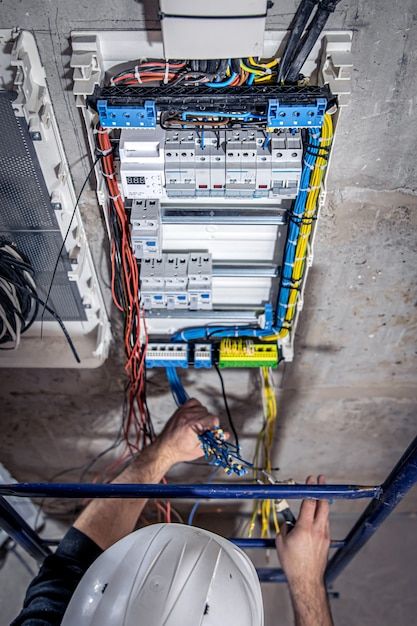The demand for skilled electricians has never been higher. With the rise of smart homes, renewable energy installations, and the constant need for electrical maintenance, becoming a qualified electrician is both a stable and lucrative career choice. However, traditional electrician training programs can be lengthy, sometimes taking several years to complete. This is where a fast track electrician course comes into play, offering aspiring electricians the opportunity to accelerate their career path without compromising on essential skills and knowledge.
In this article, we will explore what a fast track electrician course is, the benefits it offers, the skills you will gain, and why it could be the perfect choice for your future.
What is a Fast Track Electrician Course?
A fast track electrician course is an accelerated training program designed to equip students with the practical and theoretical knowledge needed to become professional electricians in a shorter period than traditional programs. These courses condense the curriculum into a focused, intensive format that covers essential topics such as electrical safety, wiring techniques, circuit installation, troubleshooting, and code compliance.
Unlike traditional programs, which may span two to four years, fast track courses can often be completed in a matter of months. They are ideal for individuals who want to enter the workforce quickly or those looking to upgrade their existing skills to meet industry demands.
Who Can Benefit From a Fast Track Electrician Course?
A fast track electrician course is suitable for a variety of learners:
- Career Changers: If you are switching careers and want to enter the electrical industry quickly, this type of course offers a practical, time-efficient solution.
- High School Graduates: Recent graduates who want to start earning quickly while pursuing a skilled trade.
- Apprentices Seeking Advancement: Existing apprentices can use fast track courses to accelerate certification and take on higher-level responsibilities sooner.
- Professionals Upskilling: Engineers or technicians looking to expand their skillset in electrical work.
No matter your background, a fast track course focuses on practical, real-world skills that employers value.
Key Features of a Fast Track Electrician Course
1. Accelerated Learning
Fast track courses are structured to provide the same level of knowledge as traditional programs but in a shorter timeframe. This is achieved through intensive study schedules, hands-on workshops, and targeted curriculum modules.
2. Practical Training
One of the most important aspects of becoming an electrician is hands-on experience. Fast track programs often include workshops, lab sessions, and real-world simulations that allow students to practice installing, repairing, and troubleshooting electrical systems.
3. Industry-Relevant Curriculum
Courses are designed to meet current industry standards and regulations. Students learn about national electrical codes, workplace safety, renewable energy systems, and the latest electrical technologies, ensuring they are job-ready upon graduation.
4. Flexible Learning Options
Many fast track courses offer flexible schedules, including evening and weekend classes, online modules, or hybrid programs. This allows students to balance work, family, and education while advancing their careers.
5. Certification and Licensing Preparation
Fast track courses often prepare students to sit for licensing exams or industry-recognized certifications. This gives graduates a competitive edge in the job market.
Benefits of Completing a Fast Track Electrician Course
Enrolling in a fast track electrician course comes with numerous benefits:
1. Quick Entry into the Workforce
The primary advantage of a fast track program is speed. Instead of spending years in training, students can complete the course and start working in the electrical field in months.
2. Hands-On Experience
Students gain practical skills through lab work, simulations, and real-world scenarios. Employers highly value hands-on experience, which often leads to better job placement opportunities.
3. Higher Earning Potential
Electricians are well-compensated, and completing a fast track program allows graduates to start earning sooner. Additionally, acquiring certifications can lead to specialized roles that pay higher wages.
4. Career Flexibility
Electricians can work in residential, commercial, or industrial settings. Fast track programs equip students with versatile skills that are applicable in multiple sectors, giving graduates a broad range of career options.
5. Personal and Professional Growth
The intensive nature of a fast track course builds confidence, problem-solving skills, and technical expertise, all of which are essential for a successful career in electrical work.
What You Will Learn in a Fast Track Electrician Course
While each course may vary, most fast track programs cover the following core areas:
- Electrical Theory: Basic concepts of electricity, including voltage, current, resistance, and power.
- Electrical Safety: Safe handling of electrical tools, understanding of safety codes, and accident prevention.
- Wiring and Installation: Techniques for installing wiring, outlets, switches, and lighting systems in residential, commercial, and industrial environments.
- Troubleshooting and Repair: Methods to identify electrical faults, repair circuits, and maintain equipment.
- Electrical Codes and Regulations: Knowledge of local and national electrical standards, including compliance requirements.
- Specialized Systems: Exposure to advanced systems such as solar panels, smart home technology, and energy-efficient solutions.
These skills prepare graduates to confidently enter the workforce and handle real-world electrical tasks.
How to Choose the Right Fast Track Electrician Course
Choosing the right program is crucial for your success. Here are key factors to consider:
1. Accreditation
Ensure the course is accredited and recognized by relevant industry bodies. Accreditation guarantees that the curriculum meets professional standards.
2. Hands-On Training
Look for programs with strong practical components, including labs, workshops, and real-world projects.
3. Experienced Instructors
Qualified and experienced instructors can provide valuable insights, mentorship, and industry connections.
4. Job Placement Assistance
Some programs offer job placement support or apprenticeships, which can significantly ease your transition into the workforce.
5. Flexible Schedule
Consider your personal commitments. Many programs offer flexible learning options to accommodate full-time work or family obligations.
Career Opportunities After a Fast Track Electrician Course
Graduates of fast track electrician courses can pursue a wide range of career paths, including:
- Residential Electrician: Install and maintain electrical systems in homes and apartments.
- Commercial Electrician: Work in offices, retail spaces, and commercial buildings.
- Industrial Electrician: Handle electrical systems in factories, plants, and industrial facilities.
- Renewable Energy Technician: Specialize in solar, wind, and other renewable energy systems.
- Electrical Contractor: Start your own business or work as an independent electrician.
With the right experience and additional certifications, electricians can advance to supervisory roles, project management, or specialized technical positions.
Conclusion
A fast track electrician course is an excellent investment for anyone looking to start a rewarding career in the electrical industry quickly. By offering accelerated learning, hands-on experience, and industry-relevant training, these courses provide the skills and knowledge needed to succeed in a competitive job market.
Whether you are a career changer, a high school graduate, or a professional seeking new opportunities, a fast track program can help you gain certification, start working faster, and enjoy the financial and personal benefits of a skilled trade.

